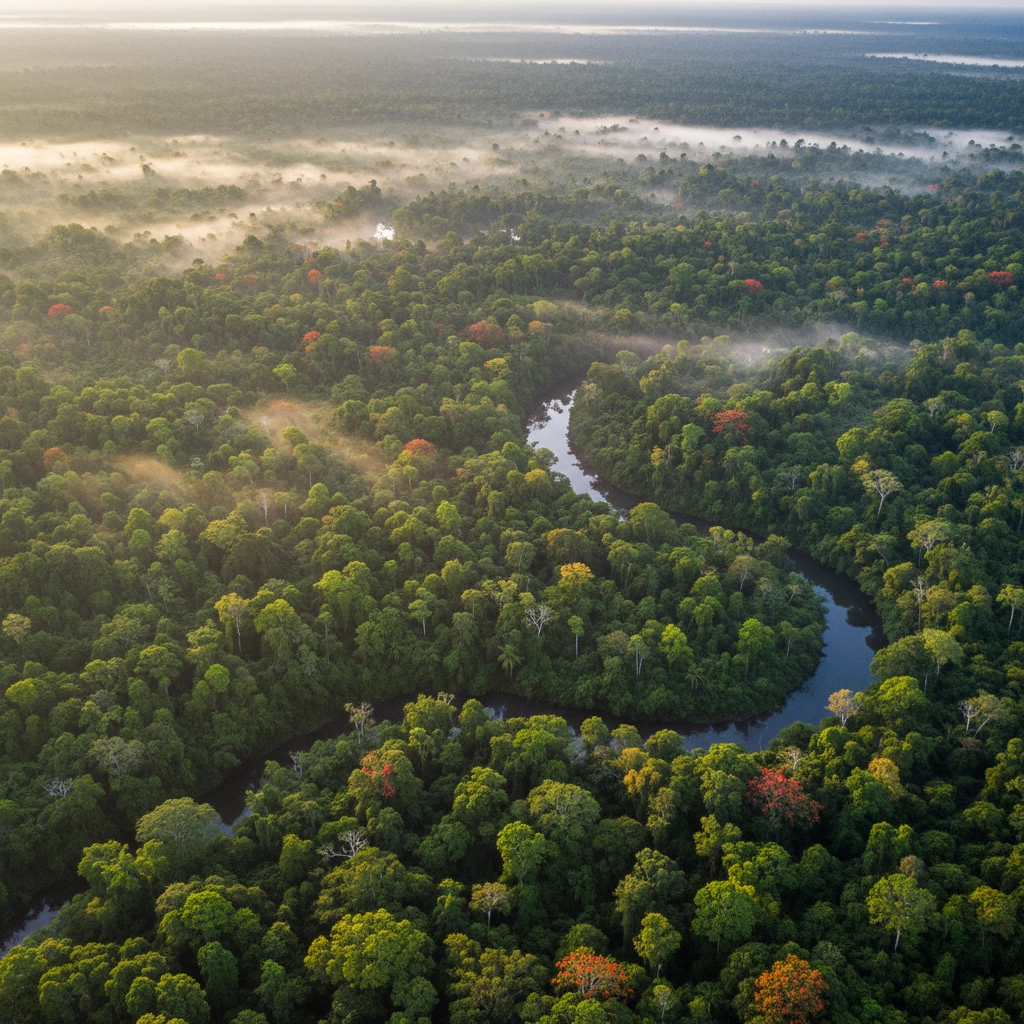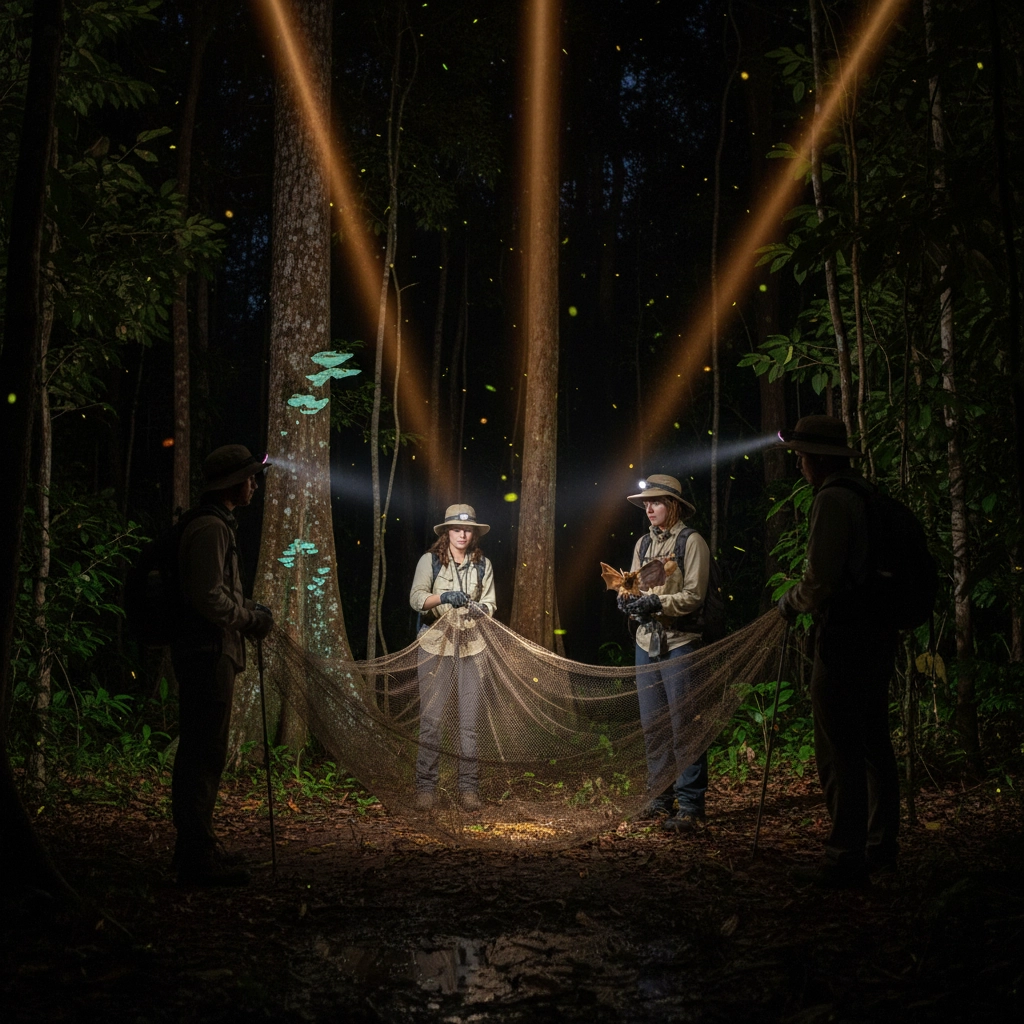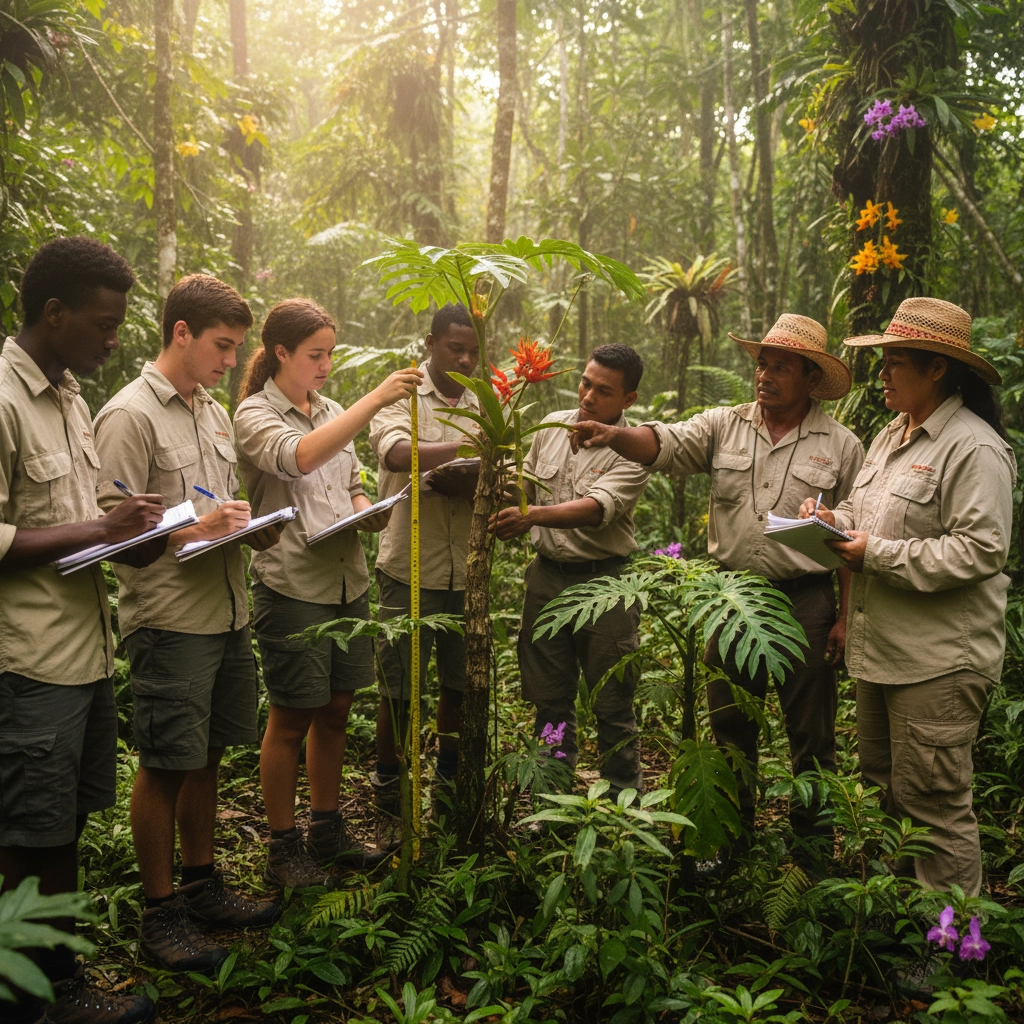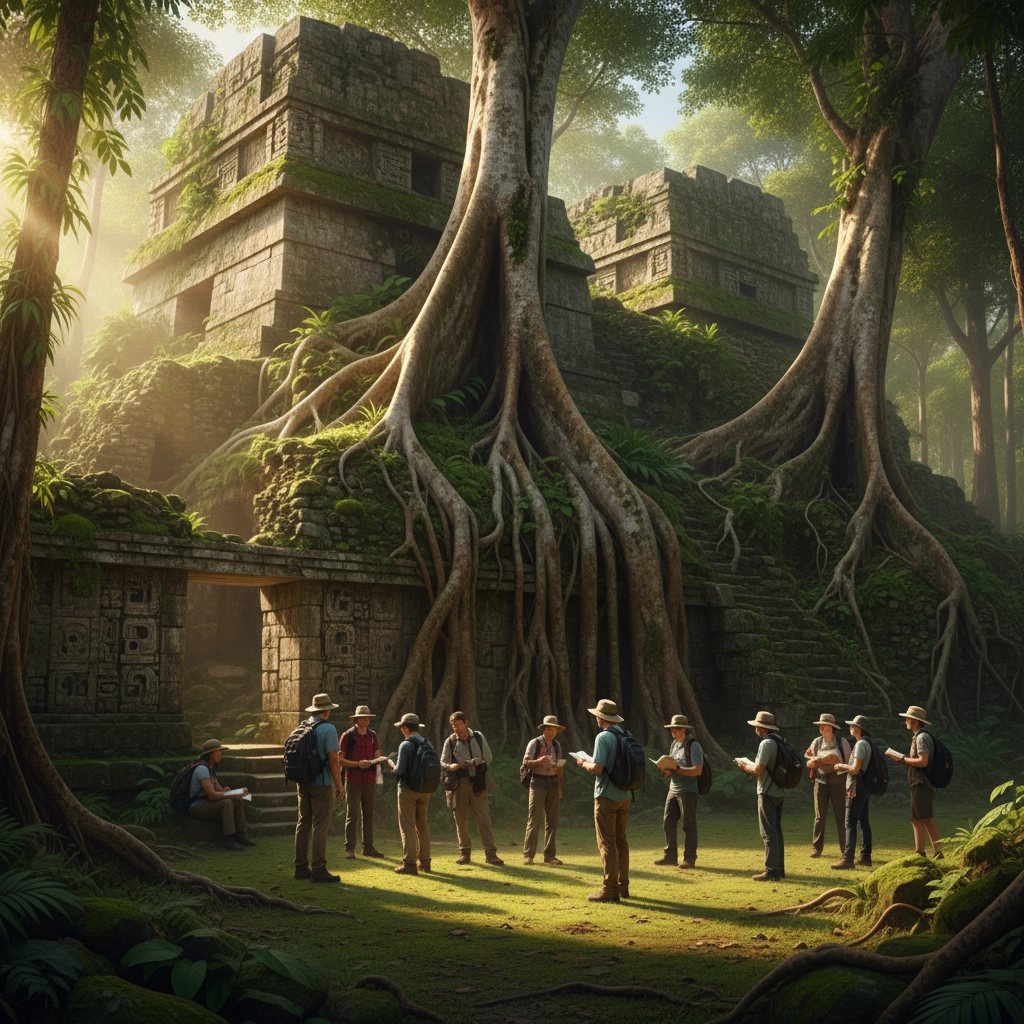Tropical Ecology Adventures: Rainforest Learning in Belize
- Caleb Mullenix
- Oct 23, 2025
- 5 min read
Ensuring students develop a deep understanding of tropical ecosystems and conservation principles is of paramount importance for fostering the next generation of environmental stewards. Belize offers an unparalleled opportunity to transform classroom learning into hands-on scientific discovery, where students engage directly with one of the world's most biodiverse rainforest environments while contributing to meaningful conservation efforts.
Why Belize Stands Apart for Tropical Ecology Education
Belize represents a unique convergence of ecological diversity, accessibility, and educational infrastructure that makes it ideal for student expeditions. The country encompasses over 5,000 plant species, 150 mammal species, and 540 bird species within a compact geographic area, allowing students to observe remarkable biodiversity without extensive travel between sites.
The nation's commitment to conservation sets it apart: with over 40% of its land under protected status, students witness conservation in action rather than merely studying it theoretically. This real-world application of ecological principles creates lasting educational impact that extends far beyond traditional classroom boundaries.

Immersive Rainforest Learning Experiences
Students participating in Belize tropical ecology expeditions engage in systematic scientific observation and data collection that mirrors professional research methodologies. Begin by preparing students for early morning birding excursions, where they will document species diversity and behavior patterns in pristine rainforest environments.
The medicinal plant identification component provides students with direct exposure to ethnobotany and indigenous knowledge systems. Guide students along specialized medicinal trails where they learn to identify key species while understanding the intersection of traditional ecological knowledge and modern conservation science. This hands-on approach to botanical studies creates memorable learning experiences that textbooks cannot replicate.
Essential Field Research Activities
Establish clear learning objectives for each field research component to maximize educational outcomes:
Nocturnal Wildlife Monitoring: Students participate in bat netting and identification surveys, learning proper handling techniques while collecting valuable ecological data. These night operations teach students about nocturnal ecosystem dynamics and the critical role of bats in tropical forest health.
Herpetology Studies: Direct observation and documentation of reptile and amphibian species provides students with hands-on experience in biological surveying methods. Emphasize proper identification techniques and the importance of these species as environmental indicators.
Tropical Botany Field Work: Students engage in experimental sampling and botanical identification exercises that develop critical scientific observation skills. Create structured data collection protocols that students can implement independently.

Conservation Learning Through Direct Engagement
Prepare students for meaningful engagement with active conservation programs that demonstrate the practical application of ecological principles. Students work alongside established conservation organizations, contributing to ongoing research and habitat protection efforts while gaining firsthand understanding of conservation challenges and solutions.
The Programme for Belize conservation area offers students access to 265,000 acres of protected rainforest where they observe large-scale ecosystem management in practice. Students learn about habitat restoration, wildlife corridor maintenance, and community-based conservation approaches that integrate local communities into protection efforts.
Building Conservation Awareness
Develop students' understanding of conservation complexities through direct participation in monitoring activities:
Species Population Monitoring: Students contribute to long-term datasets by conducting systematic wildlife counts and behavior observations. This work demonstrates how scientific data informs conservation policy and management decisions.
Habitat Assessment: Guide students through systematic evaluation of forest health indicators, teaching them to identify human impacts and natural disturbance patterns. These skills transfer directly to local environmental assessment capabilities.
Community Conservation Models: Students observe and interact with community-managed protected areas, learning how local engagement drives successful conservation outcomes.
Cultural Integration and Maya Archaeology
Ensure students understand the deep connection between human cultures and tropical ecosystems through integrated archaeological and cultural components. Maya civilization developed sophisticated understanding of rainforest ecology, and students explore these connections through site visits and cultural presentations.
Students examine how ancient Maya agricultural practices worked with rather than against natural ecological processes, providing valuable lessons for modern sustainable development approaches. This cultural dimension adds depth to ecological learning while fostering appreciation for indigenous knowledge systems.

Transformative Educational Outcomes
Document the profound impact these expeditions have on student understanding and career direction. Students consistently report that direct engagement with tropical ecosystems fundamentally alters their perception of ecological complexity and conservation urgency. The hands-on nature of these experiences creates lasting memories and deeper understanding than traditional classroom instruction alone.
Developing Scientific Skills
Students return from Belize expeditions with enhanced scientific capabilities:
Field Research Proficiency: Students gain experience with standard ecological research methods including transect surveys, species identification, and data recording protocols.
Critical Analysis Skills: Direct observation of ecosystem interactions develops students' ability to analyze complex ecological relationships and identify cause-and-effect patterns.
Conservation Problem-Solving: Students learn to evaluate conservation challenges from multiple perspectives, considering ecological, economic, and social factors in their analysis.
Practical Implementation for Educators
Begin planning your Belize tropical ecology expedition by establishing clear learning objectives that align with curriculum standards while maximizing the unique opportunities this environment provides. Create pre-trip preparation protocols that introduce students to tropical ecology concepts, species identification basics, and research methodologies they will employ in the field.
Develop partnerships with established educational facilities such as the Tropical Education Center and Toucan Ridge Ecology and Education Society to ensure students receive expert guidance and access to ongoing research projects. These partnerships provide structured learning environments while maintaining the authenticity of field research experiences.
Safety and Supervision Protocols
Establish comprehensive safety procedures that account for tropical environment challenges while maintaining educational effectiveness:
Health Preparations: Ensure all students receive appropriate vaccinations and understand tropical disease prevention protocols. Maintain detailed medical information and emergency contact procedures for all participants.
Environmental Safety: Train students in proper rainforest safety procedures including wildlife encounter protocols, weather awareness, and group supervision requirements. Emphasize the importance of staying within designated areas and following guide instructions.
Emergency Procedures: Develop clear communication protocols and evacuation procedures. Ensure all staff understand local emergency services and medical facility locations.

Maximizing Educational Value
Structure the expedition to build upon previous learning while introducing new concepts through direct observation and participation. Create daily reflection opportunities where students process their experiences and connect field observations to broader ecological principles.
Encourage students to maintain detailed field journals documenting their observations, questions, and insights. These journals serve as valuable assessment tools while helping students synthesize their learning throughout the expedition.
Post-Expedition Integration
Plan for meaningful integration of expedition experiences into ongoing coursework:
Research Projects: Students develop independent research projects based on their field observations, extending learning beyond the expedition timeframe.
Presentation Opportunities: Create platforms for students to share their experiences and insights with school and community audiences, reinforcing their learning while inspiring others.
Conservation Action: Channel student enthusiasm into local environmental action projects, applying conservation principles learned in Belize to local ecosystem challenges.
Building Lifelong Environmental Stewards
Tropical ecology expeditions to Belize create transformative educational experiences that extend far beyond traditional academic boundaries. Students develop deep appreciation for ecosystem complexity, practical conservation skills, and cultural awareness that shapes their environmental consciousness throughout their lives.
The combination of scientific rigor, cultural integration, and conservation focus ensures students return with enhanced understanding of their role as environmental stewards. These expeditions create lasting impact that influences career choices, lifestyle decisions, and community engagement long after students return home.
Prepare your students for this life-changing educational adventure by establishing clear learning objectives, ensuring proper preparation, and creating meaningful follow-up activities that sustain and extend their learning. Through careful planning and implementation, your Belize tropical ecology expedition will provide students with unparalleled educational experiences that inspire lifelong environmental commitment and scientific curiosity.



Comments